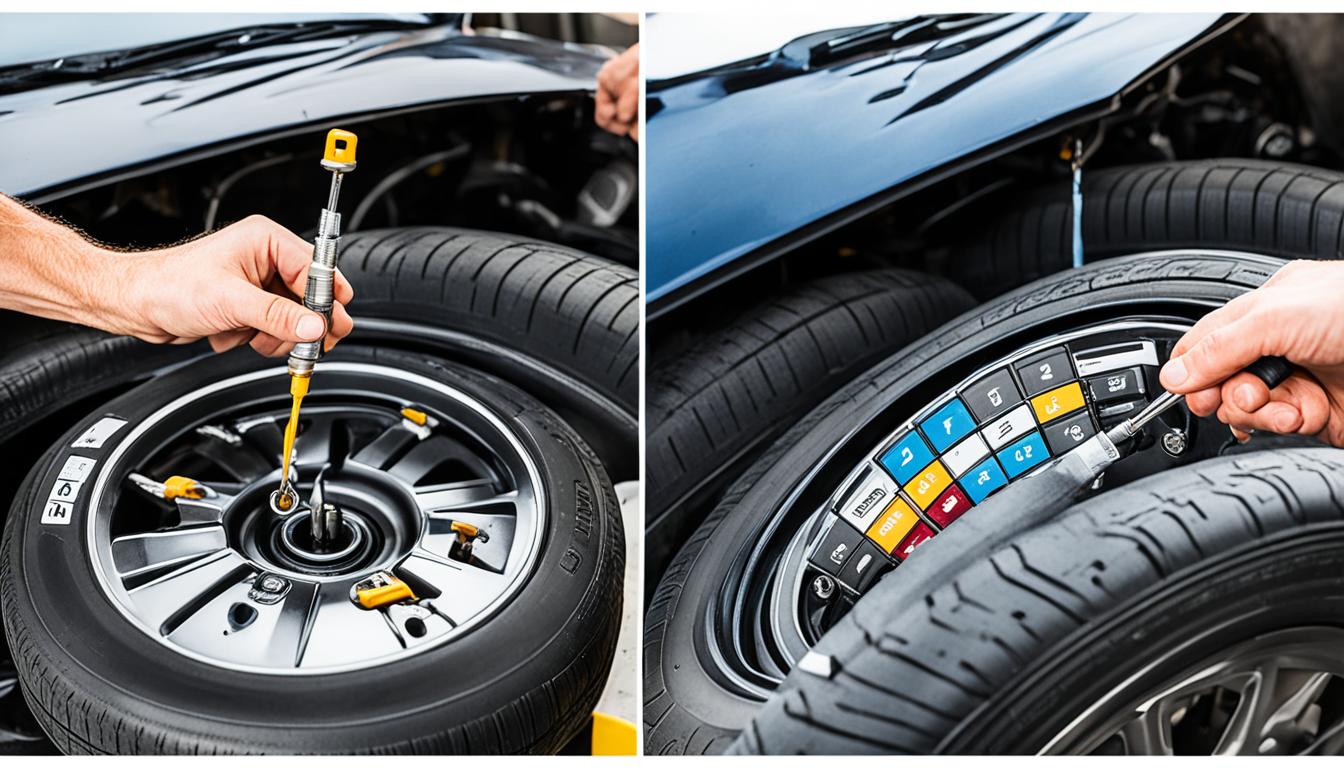All Categories
Featured
Accountable for integrating the turning of the crankshaft and camshaft, the timing belt ensures the engine's valves close and open at the right times throughout the combustion procedure. If the timing belt falls short, it can result in extreme engine damage.
What Is a Timing Belt? The timing belt is a long, toothed rubber or composite belt that attaches the crankshaft to the camshaft(s) in an internal burning engine. Its task is to keep the engine's shutoffs and pistons in sync, making certain the engine runs successfully. The timing belt likewise controls other crucial engine functions like the water pump and the power guiding pump, depending on the lorry.
![]()
Without the appropriate timing, the engine's pistons and shutoffs can collide, causing expensive and extensive damage. Changing the timing belt on timetable is one of the finest means to guarantee your engine runs at its ideal and protect against expensive repair work.
Why Timing Belt Substitute Issues. Stopping Catastrophic Engine Damages: One of the most substantial threat of not changing a worn timing belt is engine failure. If the timing belt breaks while the engine is running, the camshaft and crankshaft can come to be misaligned, causing the valves and pistons to clash. This can cause bent shutoffs, damaged pistons, and even a destroyed engine. Changing the timing belt at the suggested intervals is the finest way to prevent such catastrophic damages, conserving you from the tension and high cost of engine repair work or substitute.
![]()
Preserving Engine Effectiveness: A timing belt that remains in great problem makes sure that all engine components work in perfect harmony. If the timing belt is worn or stretched, it can trigger the engine to shed power, experience rough idling, or battle to begin. By replacing the timing belt frequently, you can maintain your engine going for peak effectiveness, which assists keep ideal gas economic situation and performance.
Preventing Unanticipated Failures: A broken timing belt can trigger your engine to stop suddenly, possibly leaving you stranded in the middle of a trip. By changing your timing belt in a timely manner, you reduce the threat of abrupt malfunctions that might leave you in a harmful or troublesome circumstance. Regular maintenance lowers the chances of experiencing these kinds of interruptions, aiding you remain on the road longer without fretting about your engine failing.
Cost-Effective Maintenance: Timing belt replacement is much less costly than fixing or changing an engine that's been harmed because of a timing belt failing. While the price of replacing the timing belt may differ depending upon your lorry and its location, it is far extra inexpensive than the prices associated with significant engine repairs or substitutes. Replacing your timing belt at the advised periods can conserve you a considerable amount of cash over the long run by avoiding damages to your engine.
When Should You Change Your Timing Belt? The timing belt doesn't last for life, and most makers advise replacing it in between 60,000 and 100,000 miles. The specific timing depends on your automobile's make, design, and driving problems, so it's necessary to examine your owner's manual for particular support.
Indications that your timing belt may require interest include unusual engine noises (such as a high-pitched whining or ticking noise), trouble starting the engine, or a decline in engine efficiency. If you see any one of these indicators, it's critical to have the timing belt examined by a professional mechanic.
![]()
Verdict. The timing belt is a vital but little component of your engine, and regular replacement is crucial to maintaining your vehicle's efficiency and avoiding expensive damages. By remaining on top of timing belt upkeep, you'll guarantee your engine runs effectively, avoid unforeseen failures, and secure your automobile from major fixings. Watch on your lorry's recommended timing belt substitute timetable, and always seek advice from a relied on mechanic to keep your engine running efficiently for years ahead.
What Is a Timing Belt? The timing belt is a long, toothed rubber or composite belt that attaches the crankshaft to the camshaft(s) in an internal burning engine. Its task is to keep the engine's shutoffs and pistons in sync, making certain the engine runs successfully. The timing belt likewise controls other crucial engine functions like the water pump and the power guiding pump, depending on the lorry.

Without the appropriate timing, the engine's pistons and shutoffs can collide, causing expensive and extensive damage. Changing the timing belt on timetable is one of the finest means to guarantee your engine runs at its ideal and protect against expensive repair work.
Why Timing Belt Substitute Issues. Stopping Catastrophic Engine Damages: One of the most substantial threat of not changing a worn timing belt is engine failure. If the timing belt breaks while the engine is running, the camshaft and crankshaft can come to be misaligned, causing the valves and pistons to clash. This can cause bent shutoffs, damaged pistons, and even a destroyed engine. Changing the timing belt at the suggested intervals is the finest way to prevent such catastrophic damages, conserving you from the tension and high cost of engine repair work or substitute.

Preserving Engine Effectiveness: A timing belt that remains in great problem makes sure that all engine components work in perfect harmony. If the timing belt is worn or stretched, it can trigger the engine to shed power, experience rough idling, or battle to begin. By replacing the timing belt frequently, you can maintain your engine going for peak effectiveness, which assists keep ideal gas economic situation and performance.
Preventing Unanticipated Failures: A broken timing belt can trigger your engine to stop suddenly, possibly leaving you stranded in the middle of a trip. By changing your timing belt in a timely manner, you reduce the threat of abrupt malfunctions that might leave you in a harmful or troublesome circumstance. Regular maintenance lowers the chances of experiencing these kinds of interruptions, aiding you remain on the road longer without fretting about your engine failing.
Cost-Effective Maintenance: Timing belt replacement is much less costly than fixing or changing an engine that's been harmed because of a timing belt failing. While the price of replacing the timing belt may differ depending upon your lorry and its location, it is far extra inexpensive than the prices associated with significant engine repairs or substitutes. Replacing your timing belt at the advised periods can conserve you a considerable amount of cash over the long run by avoiding damages to your engine.
When Should You Change Your Timing Belt? The timing belt doesn't last for life, and most makers advise replacing it in between 60,000 and 100,000 miles. The specific timing depends on your automobile's make, design, and driving problems, so it's necessary to examine your owner's manual for particular support.
Indications that your timing belt may require interest include unusual engine noises (such as a high-pitched whining or ticking noise), trouble starting the engine, or a decline in engine efficiency. If you see any one of these indicators, it's critical to have the timing belt examined by a professional mechanic.

Verdict. The timing belt is a vital but little component of your engine, and regular replacement is crucial to maintaining your vehicle's efficiency and avoiding expensive damages. By remaining on top of timing belt upkeep, you'll guarantee your engine runs effectively, avoid unforeseen failures, and secure your automobile from major fixings. Watch on your lorry's recommended timing belt substitute timetable, and always seek advice from a relied on mechanic to keep your engine running efficiently for years ahead.
Latest Posts
Specialist Commercial Roofing Solutions in North Platte, Nebraska
Published en
2 min read
Find Affordable Auto Repairs with Montclare’s Limited-Time Service Specials
Published en
1 min read
Boost Your Home's Exterior with Weathercraft's Home siding Solutions
Published en
1 min read
More
Latest Posts
Specialist Commercial Roofing Solutions in North Platte, Nebraska
Published May 27, 25
2 min read
Find Affordable Auto Repairs with Montclare’s Limited-Time Service Specials
Published May 26, 25
1 min read
Boost Your Home's Exterior with Weathercraft's Home siding Solutions
Published May 25, 25
1 min read